On the evening of September 29, the Ministry of Foreign Affairs, citing information from the Vietnamese Embassy in France, said that French police discovered six women, including four believed to be Vietnamese citizens, in a refrigerated truck in Rhone (Lyon, France). The incident occurred on September 27.
The above information makes many people shudder with fear, recalling the tragedy of 39 Vietnamese people dying in a refrigerated container truck in the UK at the end of 2019.
They risk their lives to illegally immigrate to European countries to work.
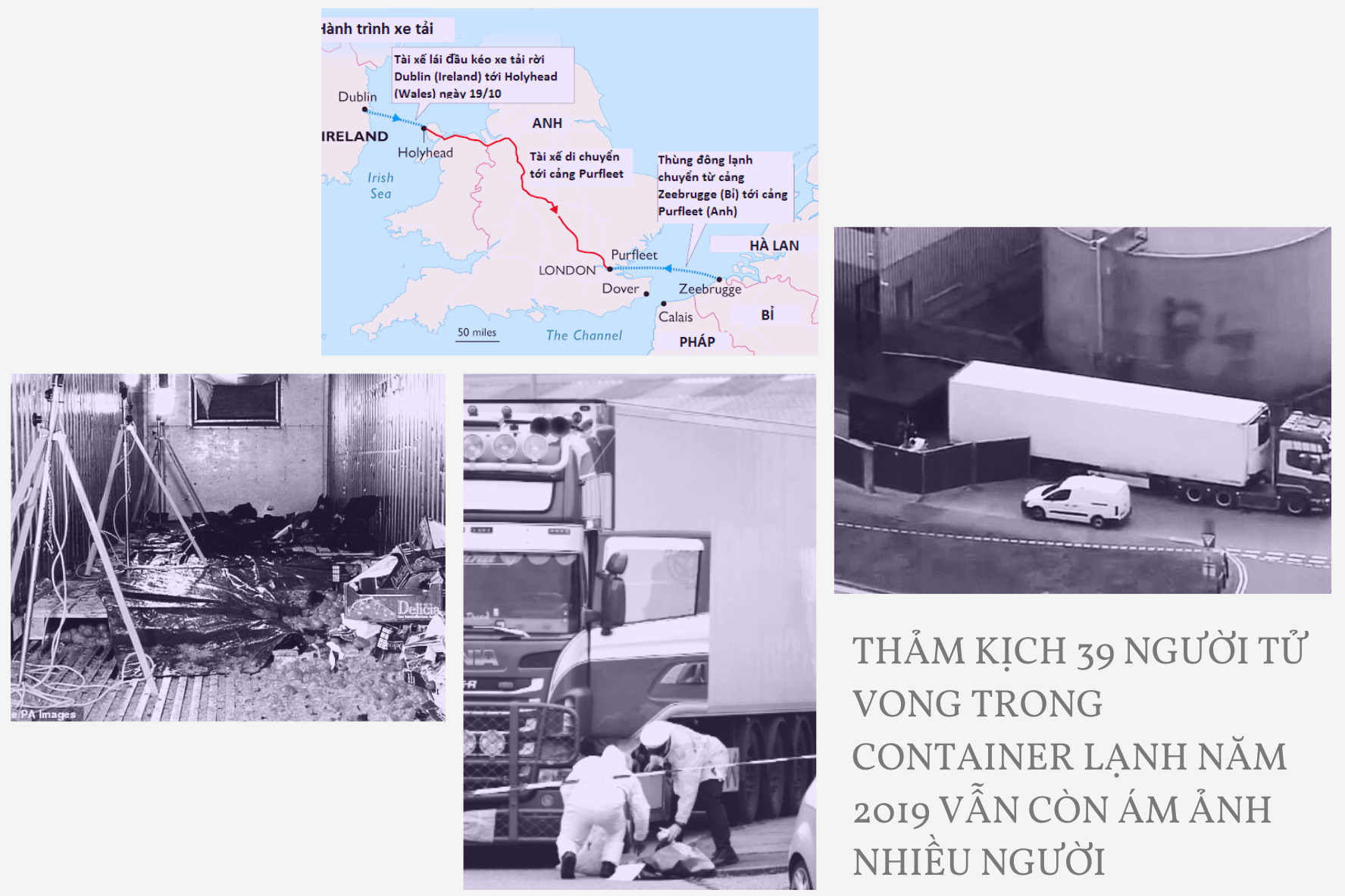
Ignorance, gullibility, trust
Recently, functional sectors have strongly implemented propaganda work on laws on workers working abroad, issuing many warnings about fraudulent activities in this field.
However, Mr. Dang Si Dung, Deputy Director of the Department of Overseas Labor Management, Ministry of Labor - Invalids and Social Affairs , said: "Currently, the Department still receives information from workers, localities and the media about many people being scammed into working abroad."
According to Mr. Dung, the reason for the above situation is that a group of workers want to work abroad to have high income, good working conditions and do not have to go through selection procedures, foreign language training, and vocational skills.
Taking advantage of this, many organizations and individuals who do not have the function of providing services to send workers to work abroad use tricks to deceive workers and send them abroad. There are very sophisticated tricks that only the management agency can detect.
Mr. Dang Si Dung said: "The fraudulent tricks of these organizations and individuals target the need to work at all costs, taking advantage of workers' limited awareness of the law and information about overseas jobs."
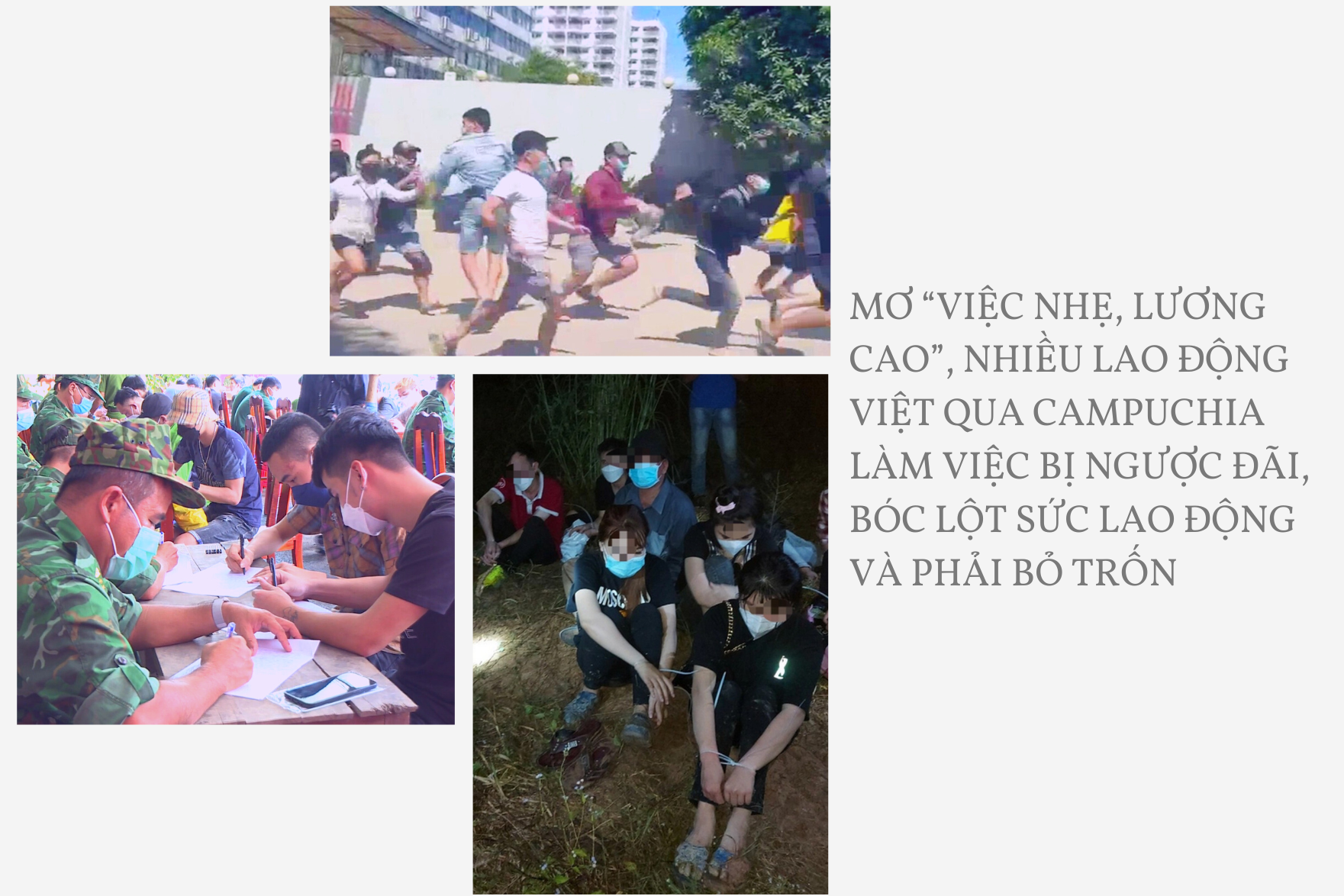
According to Mr. Le Long Son, General Director of ESUHAI Group (a company with 17 years of experience in training and sending workers to work in Japan), most people who go abroad to work illegally are gullible and believe in the guidance of acquaintances.
They see their acquaintances who go illegally but still live "well" and have a lot of money, so they follow suit and decide to "leave". These things still happen silently in life, and are very difficult to control if the awareness of this group of workers cannot be changed.
Often, those who choose to go "illegally" do not fully understand the meaning and benefits of the program to send workers abroad to work legally. They are not qualified to work but still want to earn a lot of money, so they accept the risk of going abroad to work illegally.

Ms. Le Minh Thuy, Deputy Director of Haio Education, agrees with this analysis. "Many people are gullible, listening to promises about a better-paid non-contract work environment, a dreamlike prospect in a foreign country," Ms. Thuy said.
There are also cases where workers want to work abroad but do not meet the requirements of each official market. Some people go through the official route but for some reason find a way to stay at all costs after the contract expires...
In general, the main cause of this phenomenon is assessed as the lack of information and understanding of the law by workers, and their impatience to get rich quickly, so they decide to go abroad quickly through illegal means. They do not fully anticipate the difficulties and dangers, and may even risk their lives, so they become victims of brokers.
Working illegally is harmful in many ways.
Deputy Director of the Department of Overseas Labor Management Dang Si Dung pointed out that Vietnamese workers going abroad through unofficial channels and then residing and working illegally pose many potential risks.
First of all, there is the risk of not being able to find a job, becoming an illegal resident, being arrested, fined and deported when discovered by local authorities.
Because there is no legal labor contract, the employee's job and income are not guaranteed, they do not enjoy insurance benefits, and are not protected by the laws of the host country.
In addition, illegal workers often do not have full information about their employers; lack understanding of the culture and customs of the destination country; are not equipped with work skills, vocational skills and foreign languages...
Therefore, these citizens are very susceptible to becoming victims of human trafficking and forced labor. They may also encounter many other difficulties and risks in life but are not recognized and protected by the laws of the host country.
In addition, because they work illegally, these citizens do not register with Vietnamese authorities or register their citizenship at Vietnamese diplomatic or consular offices in the country where they work. In case the workers encounter difficulties, it is very difficult for Vietnamese authorities to approach, understand, and support them to protect their legitimate rights and interests.

Ms. Le Minh Thuy added: "By working illegally, workers themselves are depriving themselves of their right to protection. This means that the health, safety and lives of workers can always be in a state of insecurity."
Because of living in hiding and residing illegally, workers' rights in work, travel, food, accommodation, healthcare ... are almost zero.
Sometimes, they are oppressed by their employers about their wages, even their wages are withheld, and they have nothing to do but blame their bad luck.
Ms. Thuy said: "Working abroad through unofficial channels will not be protected by the laws of the host country, even when being mistreated by the employer. They do not receive severance pay when fired, do not have health insurance when sick or ill, do not have insurance for risks or accidents during their life and work...".
In addition, workers simply think that risking their lives to work illegally, facing many dangers and difficulties is to earn money, take care of their families... without fully realizing that their behavior seriously violates the laws of the host country.
Local police regularly organize forces to crack down on illegal foreign workers. When discovered, the lightest penalty is a fine, the most severe is imprisonment. After that, the workers will be deported back to their home country. At the same time, workers who violate the immigration laws of the host country will be denied a visa and denied entry in the future.
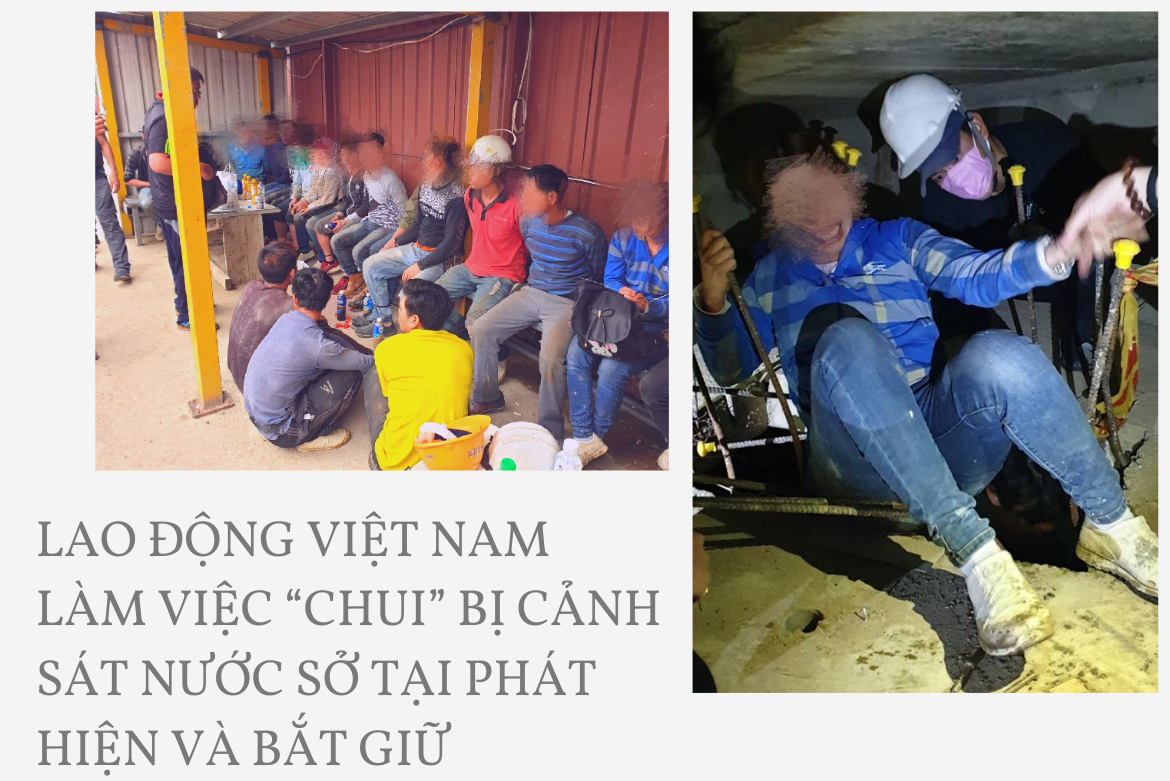
Understand correctly to avoid risking going abroad to work "illegally"
Deputy Director Dang Si Dung recommends that employees who want to work abroad need to learn about legal regulations, forms of travel, rights and obligations of employees working abroad, and fees that must be paid according to regulations...
At the same time, workers must also equip themselves with knowledge of foreign languages and necessary professional skills suitable to the requirements of the labor market; and seek information from relevant agencies to ensure that they can work abroad legally and safely.
That information is reported daily by local newspapers and radio stations, but the puzzling thing is why people still believe in the promises and still go to work illegally?
According to Mr. Le Long Son, General Director of Esuhai Group, the main reason is that workers lack information about the conditions and costs of working abroad legally.
In 17 years of training and sending workers to work in Japan, Mr. Son affirmed that the service costs for working abroad are now much more reasonable than before. The ceiling cost for sending workers to work abroad is clearly regulated under Law No. 69/2020/QH14.
Mr. Son cited that the cost of going to Japan to work under the technical intern program at Esuhai depends on each different recruitment program and does not exceed 90 million VND.
Low costs make it easy for workers to access and participate in the program to both work and accumulate experience, skills, and foreign languages, not just to earn some capital. However, there are still some people who do not fully understand the meaning of this program and choose to work abroad illegally, regardless of the risks.
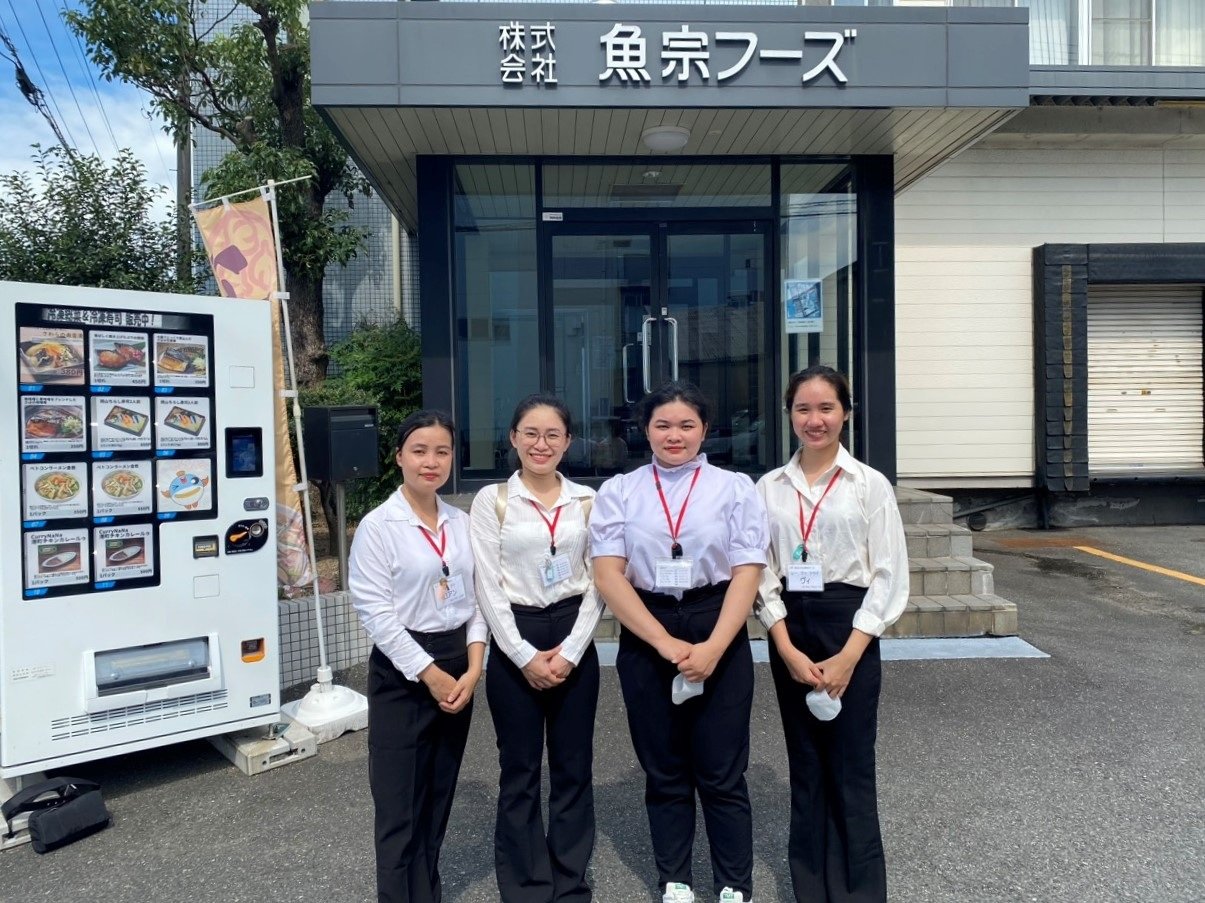
Service costs are getting lower and lower, making it easier for workers to work abroad (Photo: Contributor).
According to Ms. Le Minh Thuy, Deputy Director of Haio Education, the current total service cost at all units fluctuates between 60-100 million VND. However, she warned that when accessing services through intermediaries, the brokerage fee may increase by 20-40 million VND, so employees must research carefully.
Mr. Le Long Son added that to send workers abroad, businesses must have licenses, complete reports, and be strictly controlled by the authorities. Workers need to carefully research reputable companies and be very clear-headed in choosing a responsible dispatching company to ensure their legal rights and interests during their time working abroad.
Regarding skills and foreign languages, according to experts, these are necessary things for workers when working and living abroad, not barriers set up to limit workers from going abroad to work.

Skills are necessary requirements for employees to be able to do their jobs well and earn high income (Illustration: Contributor).
Skills are to meet job requirements, and are also a training step for employees to adapt to the upcoming job, avoiding the expense of going to another country to work but not meeting job requirements, working ineffectively, being eliminated will be a waste of the costs spent.
Foreign languages ensure that employees can communicate with native speakers, work and live well, learn many new skills at work and are the foundation for mastering another foreign language. This is a basic condition for employees to improve their self-worth after working abroad.
Source link




































![[Photo] The 9th Congress of the Party Committee of the Office of the President, term 2025-2030](https://vphoto.vietnam.vn/thumb/1200x675/vietnam/resource/IMAGE/2025/6/20/78e7f27e8c4b4edc8859f09572409ad3)

























![[Maritime News] Wan Hai Lines invests $150 million to buy 48,000 containers](https://vphoto.vietnam.vn/thumb/402x226/vietnam/resource/IMAGE/2025/6/20/c945a62aff624b4bb5c25e67e9bcc1cb)













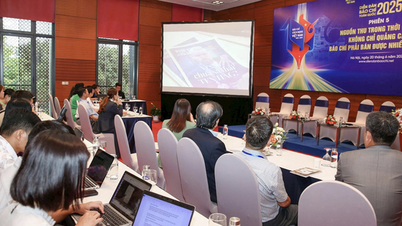















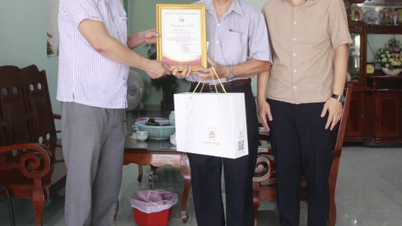















Comment (0)